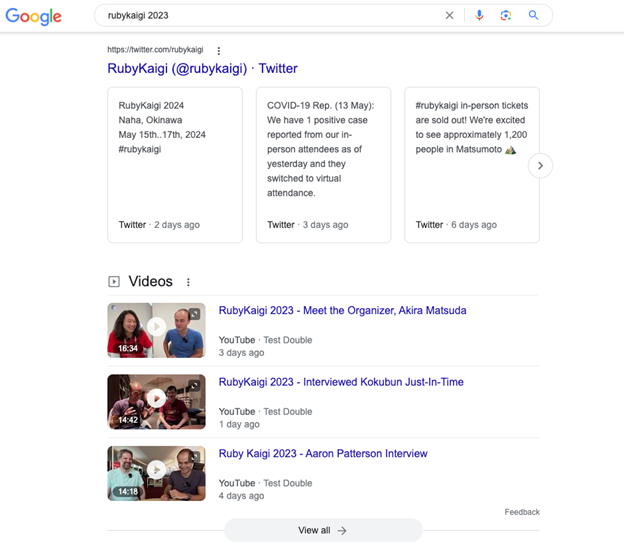We don't talk enough about what value really means in sales enablement and marketing.
Don't get me wrong... Everyone in the marketing universe talks about providing value. But it's become a bingo buzzword.
Whatever happened to real value—honest-to-goodness help for someone with a specific problem?
Maybe we should try being nice
When I explored Google Analytics alternatives, I posted in marketing communities. Crickets... until, in Email Geeks, someone based in the Netherlands saw my post.
In Europe, marketers are on the bleeding edge of ethical email and privacy-minded analytics. Because GDPR. We in the US could learn a lot from them. A few states are starting to get on board. But thanks to federalism, everything's still different depending on what state you're in.
via GIPHY
So it was amazing when a fellow marketer offered to chat about Matomo.
Now, you might say, "That's just someone being nice." Exactly! Let's make it normal to do nice things for each other.
What can you do to help people who care about the same things you do? What valuable thing can you offer with no strings attached?
To understand what's valuable to your customers, you also need to understand your customers. Because you need to spark interest and build trust.
But how do you get there?
Don't send awkward conference follow-ups
How many times have you received an email from every high-level sponsor at a conference? For many conferences, access to attendee emails is standard for premium sponsorships. And the sponsors make use of it. It is what it is, and good conferences will note that when you register.
But you know what's super bad? When the email that the sponsors send contain references about talking to you—when you did not actually talk with them at the conference!
After a conference this spring, I received a super thirsty email: "Bonus points if you include a resume!"

My reaction: "Do you care about me and my resume if you're sending this to everyone?"
Nope.
Do offer simple, human, helpful advice
I hate sponsor booths at conferences. They're awkward for the people staffing the booth and for the people walking by. (If it's not clear already, I also hate awkward conference follow-ups.)
Last year I experimented with something different: office hours. That ties into a vulnerable act for software engineers that is also valuable: pair programming.
Pair programming refers to two software developers' working alongside each other synchronously on the same code. One person might do the typing, or they might take turns. There are a lot of approaches, and it can be in-person or virtual.
Although pairing has become more common, it can still be hard. Because it often starts with "I'm stuck and need some help. Will you look at this with me?"
But it's super valuable to overcome blockers and to incorporate other perspectives. It's also a great way for senior engineers to mentor earlier-career developers.
Knowing pair programming was part of engineering culture, I pitched it as a sponsored activity. Give us a room, put us on the schedule, and we'll help folks solve problems. No charge, no hard sales message. Just our folks helping their peers in the community.
We had client prospects and candidates come out of office hour labs at two conferences in 2022, and we expect more to come from spring 2023 conferences as we do intentional follow-ups.
Our developer consultants (not salespeople) reach out to pairs with a simple, "Thanks for talking with me about that. How is it going now?" Then they share follow-up resources where it makes sense.
Helpful.
If it's going well: "Awesome! Let us know whether we can help again in the future. You can sign up for our newsletter here. We share a lot of tips and things we learn along the way."
Helpful.
If it's not going well: "Would you like to do a virtual pairing session with someone to talk it over?" Or, if it's more complex, the consultant can do a warm intro to Sales for a bigger conversation. (Warm is key here.)
Simple. Human. Helpful.
via GIPHY
What can you do that is rare and valuable?
Test Double co-founder and Meta programmer Justin Searls attended Ruby Kaigi, a national conference in Japan about the Ruby programming language. Ruby was born in Japan, which makes it a special conference.
When you attend, you hear talks from core contributors to Ruby who are shaping the future of the language. Many talks are in Japanese with simultaneous translation in English via headsets. But afterward, the talks are posted only in Japanese. And no one had covered them in English in much detail—yet!
Justin came up with the idea of doing a travel log and covering those talks with recaps in English. We workshopped the idea around what structure and form of media would work, as well as how to best capture footage with minimal equipment (because Justin travels light).
Some things worked according to plan. Others were tricky. Justin added new things along the way, such as interviews.
It was not exactly live coverage. Justin started referring to the recaps as "tape-delayed," which reminds me of Olympics coverage. I called them recaps from the "future-past" because Japan was 13 hours ahead of Eastern Time. But they were honest-to-goodness reports from the field to folks in the US and other Western countries.
Guess what happens when you cover something valuable happening across the globe—and you do it in English, in detail, and first? You get first page rankings for search results (slot 7!) and all three featured video snippets.

What does it really mean to be authentic in sales enablement?
Why do all those things work?
For that, let's turn to The Unbearable Weight of Massive Talent, which should be a cornerstone of Sales Enablement: Good or Bad?. The movie doesn't merely nod to the idea of authenticity; it embraces it with a very meta story: Actor Nicolas Cage's agent approaches him after a series of failed auditions with "the easiest gig ever, you play yourself."
The movie sets up a story of a real-but-not-real Nicolas Cage. He becomes friends with someone unexpected after attending a birthday party gig. The friendship doesn't really get off the ground, though, until they both open up with vulnerability. Like jumping off a cliff into the ocean together, even. Like the friend's showing Cage his fan collection of Nicolas Cage collectibles. And ending up with a shared problem: kidnappers!
Here's the official trailer for a good summary. (I'm going to do you a solid and warn you: It's not safe-for-work language.)
The movie is fun because the nervous buddy chemistry is spectacular. And a famous actor feels relatable even when playing the fictionalized version of himself. (Isn't that kind of a nod to Adaptation?)
Instead of hawking solutions as if they are self-explanatory, show up with vulnerability. Try to understand people. Then help them solve problems, or at least get them going on the next best first step.
Wouldn't that be valuable? And memorable?
More Resources on Sales Enablement and Valuable Content
Five Types of Content to Include in Your Sales Enablement Playbook
How to Make B2B Content Less Boring: Julie Revelant on Marketing Smarts [Podcast]




